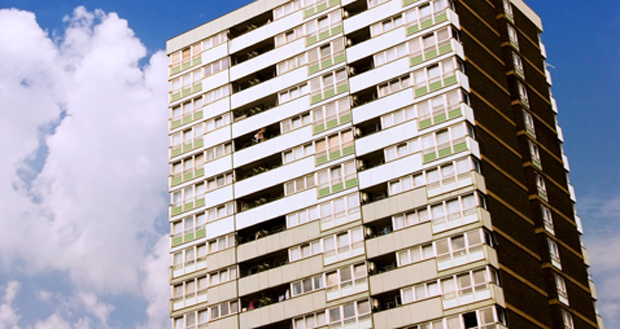One in 10 social rented homes in England continue to fall below the government’s Decent Homes Standard – the equivalent of nearly 430,000 properties, according to new analysis from property inspection software platform, Inventory Base.
This comes as the social housing sector prepares for the enforcement of Awaab’s Law from 27 October. The new legislation will require social landlords to address emergency health and safety hazards, including issues like damp and mould, within strict timeframes.
While Awaab’s Law marks an important step forward for tenant safety, questions remain about how effectively it can be enforced in practice. Crucially, remediation depends on landlords first being made aware of any hazards, which often requires tenants to report them, something that may not always happen.
Passing a law does not automatically transform housing conditions. The Decent Homes Standard (DHS) is a clear example.
Introduced over two decades ago, the DHS sets out minimum housing quality requirements for social landlords, including local authorities and housing associations. Landlords who fail to comply face serious consequences, including fines, enforcement notices, and potential criminal prosecution.
Yet Inventory Base’s analysis of data from the English Housing Survey shows that in 2013, more than 10 years after the DHS was introduced, approximately 593,000 social homes still fell below the standard.
By 2023, that number had fallen by 27.8 per cent, but these latest figures suggest around 428,000 social rented properties in England, more than 10 per cent of the total stock, still failed to meet the required standard.
Looking ahead, Inventory Base has now forecast that by the end of 2025, nearly 405,000 homes will remain classified as “non-decent”, almost a quarter of a century after the standard was introduced.
What does this mean for Awaab’s Law?
This record of slow, uneven compliance raises blunt questions about how quickly and effectively Awaab’s Law will deliver the changes it promises.
If a minimum standard introduced more than 20 years ago still leaves hundreds of thousands of homes failing, there is a real risk that a new, urgent law (however well intentioned) could stall in the same way.
For Awaab’s Law to have any real bite, landlords cannot rely on tenants to flag issues after they’ve already become dangerous. They must move from reactive repairs to proactive prevention: regular inspections, early hazard detection, and auditable digital workflows that leave no room for delay or denial.
Without that operational shift, the legislation risks becoming another well-meaning framework that looks strong on paper but takes decades to change conditions on the ground.
Sián Hemming-Metcalfe, Operations Director at Inventory Base, commented: “The persistent gap in Decent Homes Standard compliance underlines a hard truth: legislation alone cannot drive meaningful change without robust enforcement and proactive management. Awaab’s Law is a vital step forward, but unless landlords and managers are utilising efficient systems to identify and address hazards before they escalate, the same implementation delays that plague DHS compliance are likely to resurface.
“Social housing providers must now adopt a preventative mindset, conducting regular inspections, logging issues comprehensively, and maintaining a clear, auditable digital workflow to ensure accountability and timely resolution.
“In a climate of increasing scrutiny, transparency and timely action are not optional, they are operational necessities.”
Facilities & Estates Management Live will open its doors on 7th and 8th October at the Business Design Centre in London.
Brought to you by the people behind the Facilities Management Journal (FMJ), visitors can tour the exhibition stands featuring some of the leading FM service providers & product suppliers as well as enjoy a lively seminar programme.
There are two concurrent speaking schedules at the show: A series of KEYNOTE talks from thought leaders in FM and the built environment and a series of INNOVATION presentations from key suppliers in the market.
The programmes have been compiled by FMJ in consultation with members of the FMJ editorial steering group who represent client side FMs from a range of sectors, including public sector, not for profit, professional services and healthcare.
Securing your free pass and fast entry to the show couldn’t be easier, simply click here.





